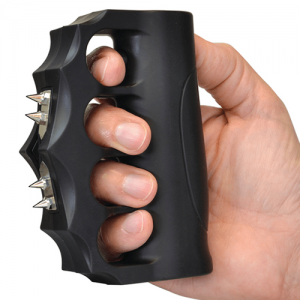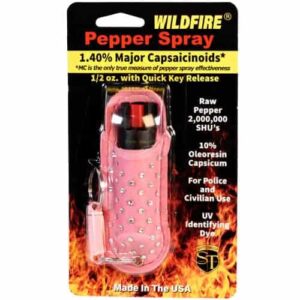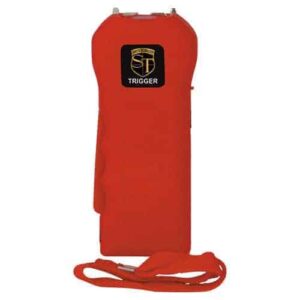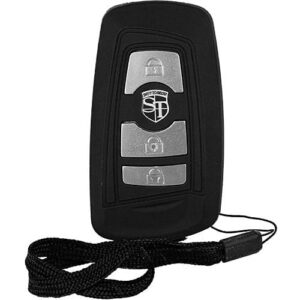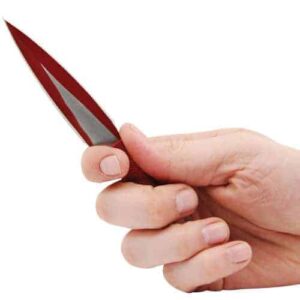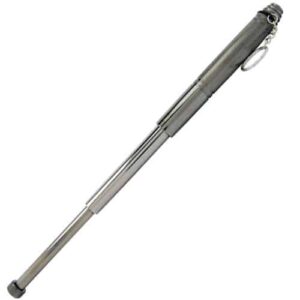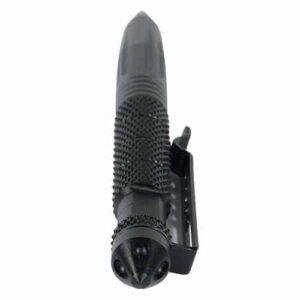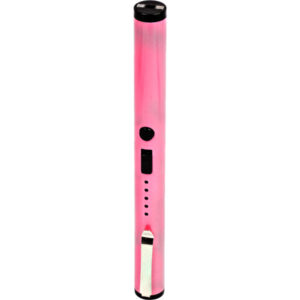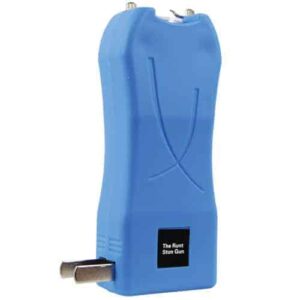In this intriguing article titled “Pepper Spray Eyes Treatment,” you’ll uncover invaluable information about tackling the unfortunate circumstance of getting pepper spray in your eyes. You’ll learn the best and most efficient ways to alleviate the intense discomfort and pain that such an occurrence can bring. Through a careful exploration of steps, remedies, and potential precautions for pepper spray incidents, this article equips you with robust knowledge for effective eye treatment.

Table of Contents
ToggleUnderstanding Pepper Spray
You might have heard about pepper spray before, or maybe you even have a bottle for your personal protection. But have you ever stopped to understand what it is and how it works?
What is pepper spray?
pepper spray is a self-defense tool that contains oleoresin capsicum, a lubricant such as vegetable oil, and a propellant. The key ingredient, oleoresin capsicum, is the same chemical that makes peppers spicy. In simple terms, pepper spray is a spicy spray specifically designed to disorient and disable potential attackers.
How does pepper spray work?
When pepper spray is used, it inflames the mucous membranes in the eyes, nose, throat, and lungs of the attacker. This causes their eyes to close, takes away their vision, and makes it difficult for them to breathe. The effects can last anywhere from 20 minutes to an hour.
Why is pepper spray used as a self-defense tool?
Pepper spray is widely used as a self-defense tool because it provides an effective solution for personal protection that is non-lethal and legal in many regions. It incapacitates an attacker without causing permanent harm – a very attractive option for people seeking a way to protect themselves.
Immediate Steps After Exposure
To pepper spray is a scary experience. If you or anyone else has been accidentally exposed to it, here are the immediate steps that you should take.
Move to a safe area
Immediately move away from the source to a well-ventilated area—preferably outdoors. This will minimize further exposure to the spray and allow fresh air to help dissipate the chemicals.
Flush the eyes with water
The next thing you should do is gently flush the eyes with water for at least 15 minutes. It might be uncomfortable initially, as water can reactivate the burning sensation. But washing the affected areas helps to remove the chemicals.
Remove contact lenses (if applicable)
If the person who is exposed to the pepper spray is wearing contact lenses, these must be removed as soon as possible. The spray may have gotten trapped under the contacts and can cause further irritation or damage if not removed.
Over-the-Counter Remedies
If exposure to pepper spray has left a lingering burning sensation, there are over-the-counter remedies that could help.
Cold compress
A cold compress can help reduce swelling and alleviate the burning sensation. Make sure the compress is not too cold to avoid causing any additional discomfort.
Milk or dairy products
Milk or dairy products can help neutralize the capsaicin in the pepper spray, which eases the burning sensation as it is a fat-soluble compound. So, applying cold milk to the eyes or drinking it can provide some relief.
Saline solution
Saline solution can also be used as it helps to flush the eyes and remove any remaining residue of the pepper spray.
Home Remedies
If you cannot access the remedies mentioned above, don’t worry! There are home remedies that can help as well.
Using cold milk
As mentioned before, cold milk can help due to its fat content that neutralizes the capsaicin in the pepper spray.
Baking soda solution
A simple solution of baking soda and water can also be helpful. Baking soda helps neutralize the pH level of the pepper spray, thus providing relief.
Cucumber slices
Another soothing home remedy is placing cold cucumber slices on the eyes. They have a cooling effect and can help reduce inflammation.

Prescription Medications
In case the pain and irritation persist, you might need prescription medications to get relief.
Topical steroids
Topical steroids can be prescribed to reduce inflammation. However, they should be used under the supervision of a healthcare professional to avoid potential side effects.
Nonsteroidal anti-inflammatory drugs (NSAIDs)
NSAIDs, like ibuprofen, can be used to manage pain and reduce inflammation caused by the pepper spray.
Antihistamine eye drops
Antihistamines can also be used to reduce swelling and itching in the eyes.
Professional Medical Treatment
Sometimes, post-exposure to pepper spray, professional medical help may be needed.
Visit an eye care specialist
If your symptoms are severe or don’t improve within several hours, you should seek professional help. An eye care specialist can examine your eyes and ensure that no serious damage has occurred.
The importance of a comprehensive eye examination
A comprehensive eye examination becomes important post-exposure to pepper spray, as it can cause corneal abrasions and other serious eye conditions.
Possible treatments or procedures
After conducting an eye examination, the eye care specialist may recommend treatments or procedures such as bandaging the eye, prescribing steroids or antibiotics, or, in severe cases, referring to an ophthalmic surgeon.
Preventing Pepper Spray Injuries
Spending some time on understanding proper usage and caution can prevent many pepper spray-related injuries.
Choosing the right pepper spray
The first step towards prevention of injuries is choosing the right spray. It should fit your requirements and be easy to use.
Proper usage techniques
Learning how to use the spray properly can also prevent accidental exposure.
Protective eyewear
Wearing protective eyewear can help prevent exposure to the eyes.
Safety Precautions and First Aid Kit
Taking necessary safety precautions and having a first aid kit handy can manage accidental exposures much better.
Safety precautions while handling pepper spray
Always handle the spray with care. Do not point the canister towards your face or allow children to play with it.
Items to include in a pepper spray first aid kit
Items such as water, milk, cold compresses, saline solution, and certain medications should be included in the first aid kit.
Providing immediate assistance to others
Knowing these strategies can also help you provide immediate assistance to others who have been exposed to pepper spray.
Potential Complications
While pepper spray is generally considered safe to use, there can be potential complications.
Corneal abrasions
The spray can cause corneal abrasions, which are painful and can affect your vision.
Eye infections
Infections can occur if the spray is contaminated, or if the eyes are not adequately flushed afterward.
Long-term effects
Although rare, continual exposure can cause long-term respiratory and ocular effects.
When to Seek Emergency Medical Attention
In some cases, medical attention may be necessary post-exposure to pepper spray.
Severe eye pain or persistent discomfort
If the pain or discomfort persists even after trying over-the-counter medication and home remedies, it’s time to seek medical attention.
Visible eye injuries or unusual symptoms
Visible injuries, swelling, discolouration, or any other unusual symptoms should immediately send you to the ER.
Difficulty breathing or swallowing
Difficulty in breathing or swallowing could indicate a severe reaction and requires immediate medical attention.
Through this article, we hope you have gained a better understanding of pepper spray and how to handle it. Remember, being informed and prepared is always the best defense!



